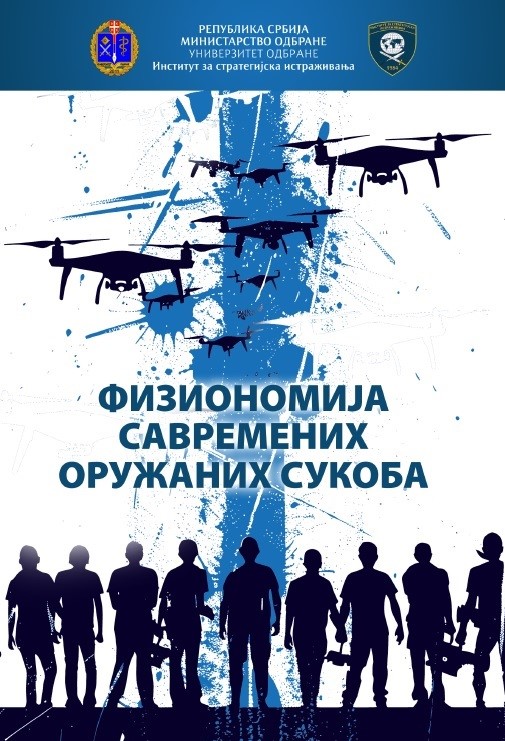Monograph “The Physiognomy of Contemporary Armed Conflicts,” Strategic Research Institute, Belgrade, 2025.
Numerous and profound social changes that occurred in the late 20th and early 21st centuries, alongside the civilizational advancement of civil society and techno-technological transformations, especially in the field of information and information-communication technologies, have also led to a different structure in international relations. All these changes have resulted in a situation where military power, while still necessary for resolving conflicts and achieving projected goals and interests, is no longer sufficient for victory. It is evident that contemporary conflicts, in comparison to previous ones, differ both in terms of the strategy applied, which defines the means, methods, and objectives that are desired and achievable, and in the increasing presence of violent non-state actors as one of the parties involved in conflicts.
A state's international position is determined by its economic potential, military power, geographic location and regional conditions, as well as its socio-historical legacy. The growing complexity and diversity of social relations create a context in which non-military and asymmetric challenges, risks, and threats become the dominant forms of security endangerment. The concept of military neutrality, with particular reference to the concept of “total defense,” emerges as a potential state response to the altered physiognomy of contemporary armed conflicts.
A large number of “open questions” and the pronounced need of the defense system for knowledge in this field marked the beginning of the research team’s work within the Department for Defense Studies at the Institute for Strategic Research. The central result of their work, alongside numerous articles published in prominent scientific journals, is the scientific monograph titled “The Physiognomy of Contemporary Armed Conflicts.” This monograph is part of a project carried out at the Strategic Research Institute between 2021 and 2023. The research findings and the conclusions based on them comprise the content of the monograph.
Therefore, the monograph analyzes the mentioned issues, structured into five chapters:
1. Contemporary Armed Conflicts and the Political Utility of Military Power in Postmodern Wars
2. Challenges, Risks, and Threats in the Contemporary Security Context
3. Information Warfare as a Component of Contemporary Armed Conflicts
4. Psychological Warfare in Contemporary Armed Conflicts
5. The Concept of Total Defense as a Response to Contemporary Armed Conflicts
umerous andA large number of “open questions” and the pronounced need of the defense system for knowledge in this field marked the beginning of the research team’s work within the Department for Defense Studies at the Institute for Strategic Research. The central result of their work, alongside numerous articles published in prominent scientific journals, is the scientific monograph titled “The Physiognomy of Contemporary Armed Conflicts.” This monograph is part of a project carried out at the Strategic Research Institute between 2021 and 2023. The research findings and the conclusions based on them comprise the content of the monograph.
Therefore, the monograph analyzes the mentioned issues, structured into five chapters:
1. Contemporary Armed Conflicts and the Political Utility of Military Power in Postmodern Wars
2. Challenges, Risks, and Threats in the Contemporary Security Context
3. Information Warfare as a Component of Contemporary Armed Conflicts
4. Psychological Warfare in Contemporary Armed Conflicts
5. The Concept of Total Defense as a Response to Contemporary Armed Conflicts
 ATTACHMENTS
ATTACHMENTS

